Updated: A country-by-country guide to Caribbean reopenings
Editor's note: This recurring post is regularly updated with new information.
White sand, endless sunshine and the "Out Of Office" reply locked in. Hey, just because we love our job doesn't mean TPG staff isn't excited about hitting the beach for a much-deserved vacation.
The rollout of the vaccines has led to many popular destinations relaxing travel restrictions. But that good news has been tempered by the troubling upsurge in COVID infections in many countries due to the harsh delta variant.
International travel still requires jumping through a few hoops, but there are destinations open to U.S.-based travelers — including many in the Caribbean. But with this new resurgence in COVID concern, we're monitoring many countries to see if they've changed the requirements for visitors.
For more travel news and advice, make sure to sign up for our daily newsletter!
At the moment, the U.S. State Department has many Caribbean destinations designated as Level 3: Reconsider Travel or Level 4: Do Not Travel when it comes to COVID-19 risk. What does that mean, exactly? It means that while some islands may be open for U.S. tourists, you need to consider whether travel is worth the risk.
Here's what you need to know if you are planning a Caribbean trip.
This guide is current as of the time of publication, and we will keep information regularly updated as the global situation progresses.
And if you missed it, here's our country-by-country guide to reopenings.

[table-of-contents /]
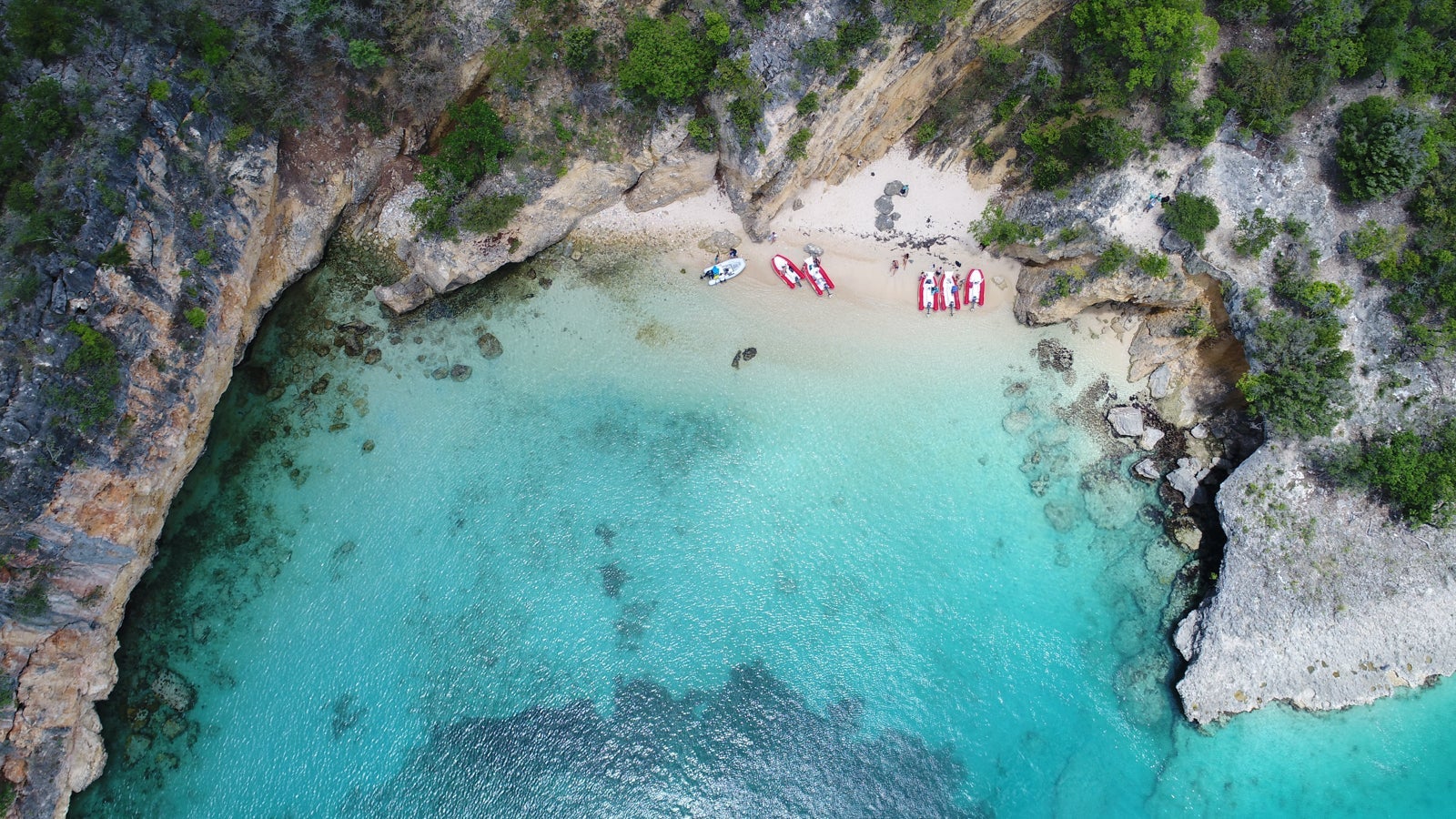
Anguilla: Open, application and negative test required
Anguilla has had remarkable success avoiding any severe impact from the coronavirus, with zero deaths related to COVID-19 to date. It reopened to visitors back in November 2020, but there are considerable precautions being taken by the island to ensure all visitors and residents remain safe and that the spread of COVID-19 is avoided.
To visit Anguilla you must first apply through the Visit Anguilla website. As of July 1, only fully vaccinated travelers (who have been vaxxed at least three weeks before arriving) will be considered. Additionally, all applicants are required to submit a negative COVID-19 test three to five days before arrival, from a verified testing center. Visitors must also carry travel insurance that covers any potential COVID-19-related treatments. The U.S. Embassy reports that you'll also be tested again upon arrival.
For unvaccinated travelers, there is a mandatory 14-day quarantine at an approved location with a third COVID-19 test at the end of the quarantine period. There are also fees associated with traveling depending on family size and duration of stay, starting from $300 per person and ranging up to $3,000 for extended stays.
For vaccinated travelers, there is no need to pay any fees, but you will be required to remain at your hotel/rental property until you receive your Port of Entry negative RT-PCR COVID-19 test results.
Anguilla has had just 113 COVID-19 cases total throughout the entire pandemic as of this writing, so the precautions taken are a necessary step to keep residents and everyone who visits the island safe.
Antigua and Barbuda: Open, negative test required
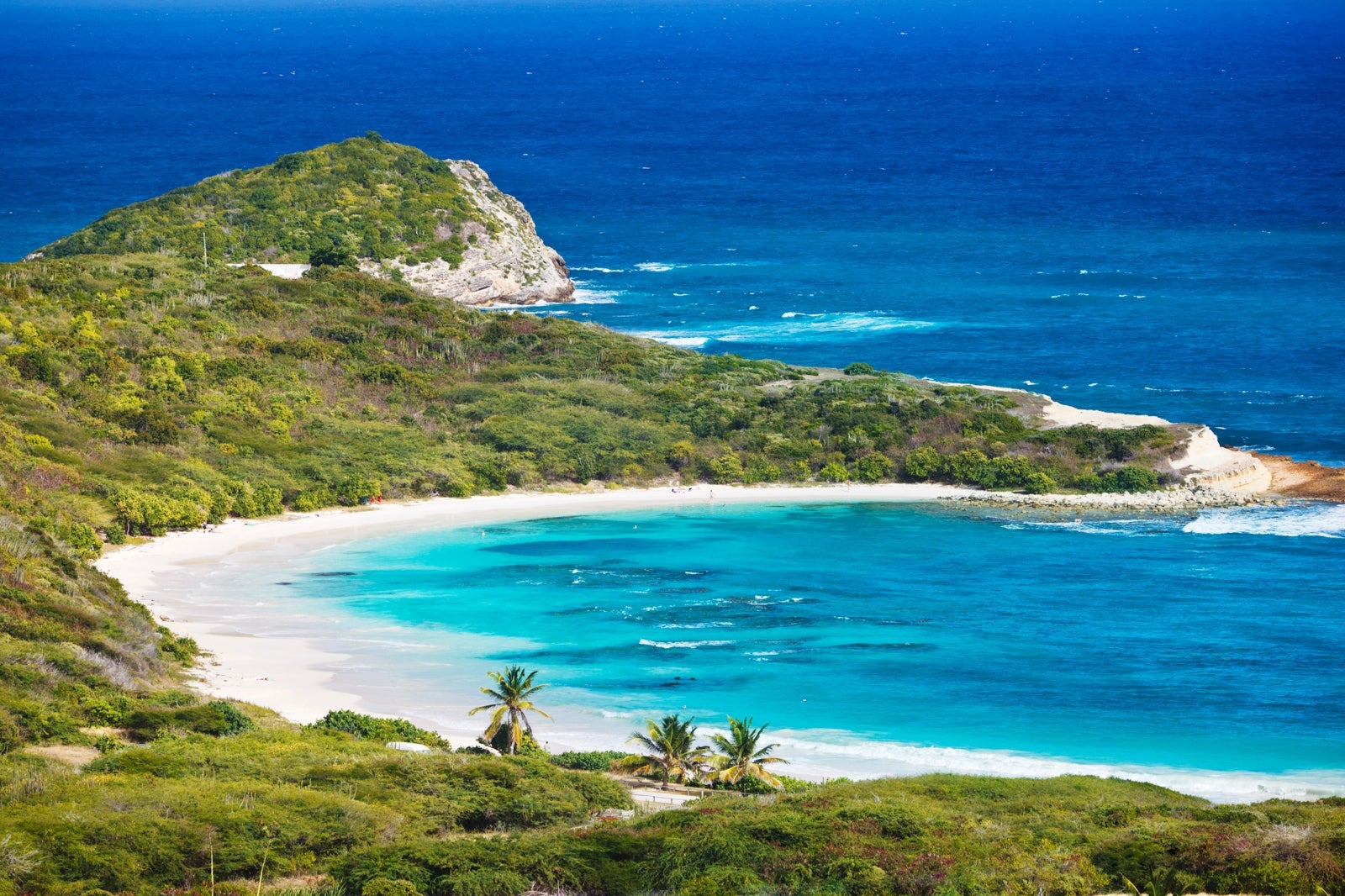
The country has been open to tourists since June 2020, but with a number of restrictions in place. While some of those restrictions have now been lifted, travelers will have to adhere to social distancing guidelines, including wearing face masks in public. The island has an 11 pm-to-5 am curfew, which all things considered, isn't all that bad.
All arriving travelers must have a negative COVID-19 PCR test taken within seven days of arrival. And the Visit Antigua and Barbuda website specifically says that at-home PCR test kits are not acceptable — your test must be administered by a medical professional.
You'll need to complete a health declaration form (which will be provided to you on your flight), and you may be required to undergo further COVID-19 testing upon arrival if deemed necessary by a health officer. These tests are $100 each.
Vaccinated travelers only need to quarantine until receiving the results of their arrival test when staying at a certified accommodation. Unvaccinated travelers must quarantine for seven days at their own expense.
You can learn more about traveling to Antigua and Barbuda on the FAQ page on its tourism website.
Aruba: Open, Fully Vaxxed visitors can skip arrival tests
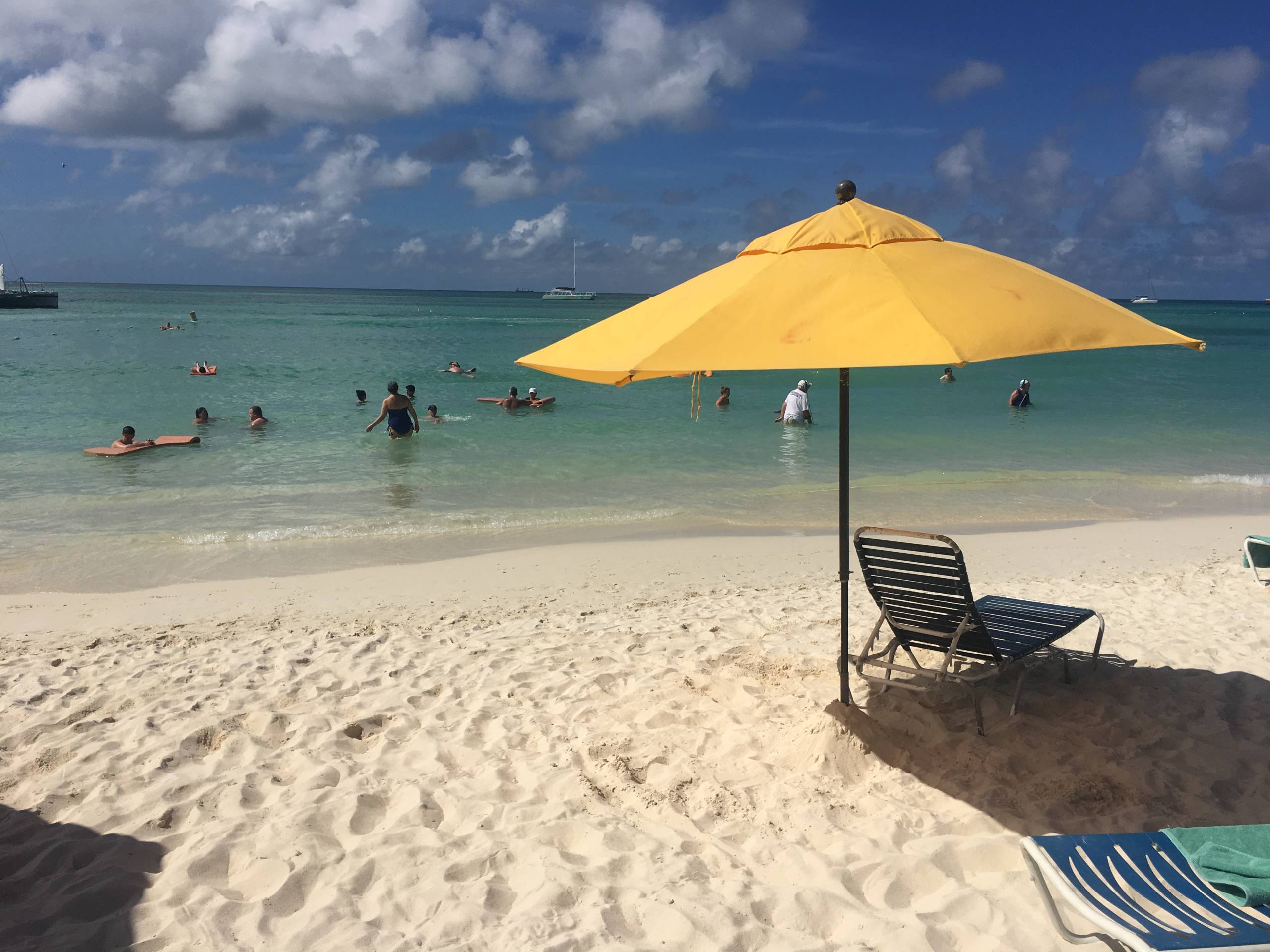
Good news for Americans looking for a few fun days of relaxation in Aruba. As of July 14, fully vaccinated visitors from the U.S. can skip Aruba's COVID testing requirements, as long as they meet certain requirements.
Those conditions, which can be found on Aruba's website, include being vaccinated by a double or single-dose FDA-authorized vaccine, and it has been at least 14 days since your last dose of vaccine was administered. You must also have a Smart Health Card vaccine record, which is essentially a paper or digital version of your vaccination information. If you meet these requirements, fully vaccinated U.S. visitors do not have to take a COVID test upon arrival.
Borders reopened to travelers back in July 2020. The government has published a visitors guide on various safety- and health-related matters for anyone seeking to visit.
Currently, all travelers must fill out an embarkation/disembarkation card (ED card) online at edcardaruba.aw. Additionally, you'll need to purchase Aruba Visitors Insurance and submit a personal health assessment between 72 and four hours before traveling to Aruba. A negative COVID-19 test is required for all unvaccinated travelers 14 and up.
You can take a test prior to arrival (which is the preferred method), or you can take a PCR test when you get to Aruba for $75 per person. You will be required to quarantine at your booked place of stay until your test results get back if you opt to test on arrival.
Aruba does have a page on its tourism website dedicated to COVID-19 updates, so you can check to see the number of new cases, total active cases and recovered cases to help you make an informed decision about traveling.
Bahamas: Open, health visa required
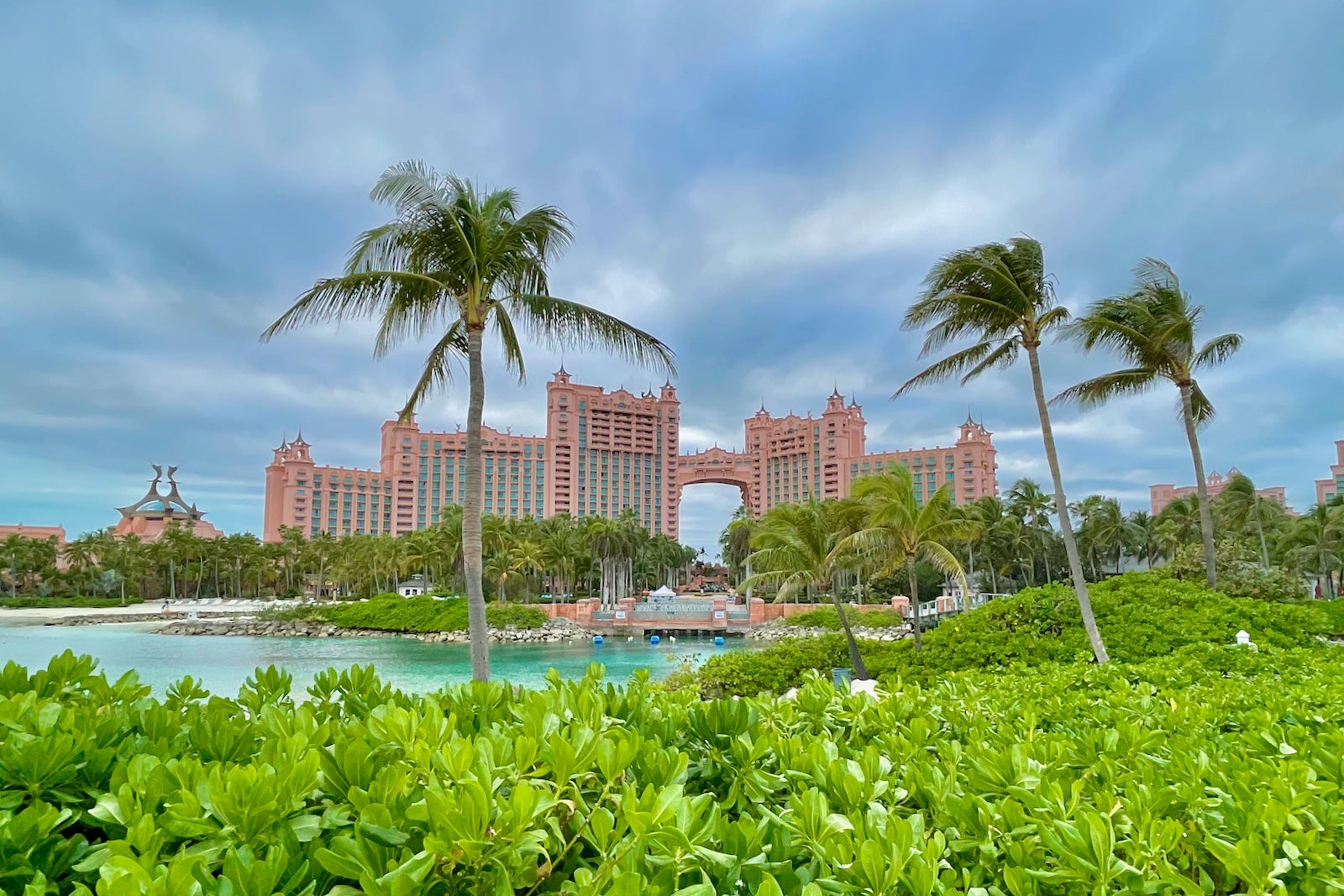
The Bahamas are open for U.S. tourists, and fully vaccinated visitors have a much easier time getting to the beach.
If you are fully vaccinated and have passed the two-week immunity period, you are exempt from COVID-19 testing requirements for entry and inter-island travel. You can read all the details here.
No matter what your vaccinated status is, before visiting you'll need to apply for a Bahamas Travel Health Visa at travel.gov.bs. The visa has a nonrefundable fee for all travelers that varies based on vaccination and residency status. Interisland travel requires a Travel Health Visa as well.
In addition to the Bahamas Travel Health Visa, travelers must also need to provide either proof of full vaccination or a negative COVID-19 PCR test, depending on their vaccination status. If you must provide a negative test, it must be taken within five days of arrival. Unvaccinated travelers staying more than five days must get another test on day five. The cost of this test is factored into the Travel Health Visa price.
You will be required to opt into health insurance coverage during the visa application process. The cost of this insurance varies based on vaccination and residency status.
It's important to time your test and visa application carefully. Travel Health Visa applications take up to 48 hours to process, and you'll need your negative test results before you apply. You'll also need to present the test results upon arrival.
When on the islands, there are a number of restrictions and precautions in place to help keep everyone safe. The Bahamas tourism website has an interactive map to help you figure out what activities are available in each area. For example, you're free to roam in many parts of the country, but some islands have curfews in place.
Related: Everything US citizens need to know about the Bahamas' simplified entry process
Barbados: Open, negative test and quarantine required
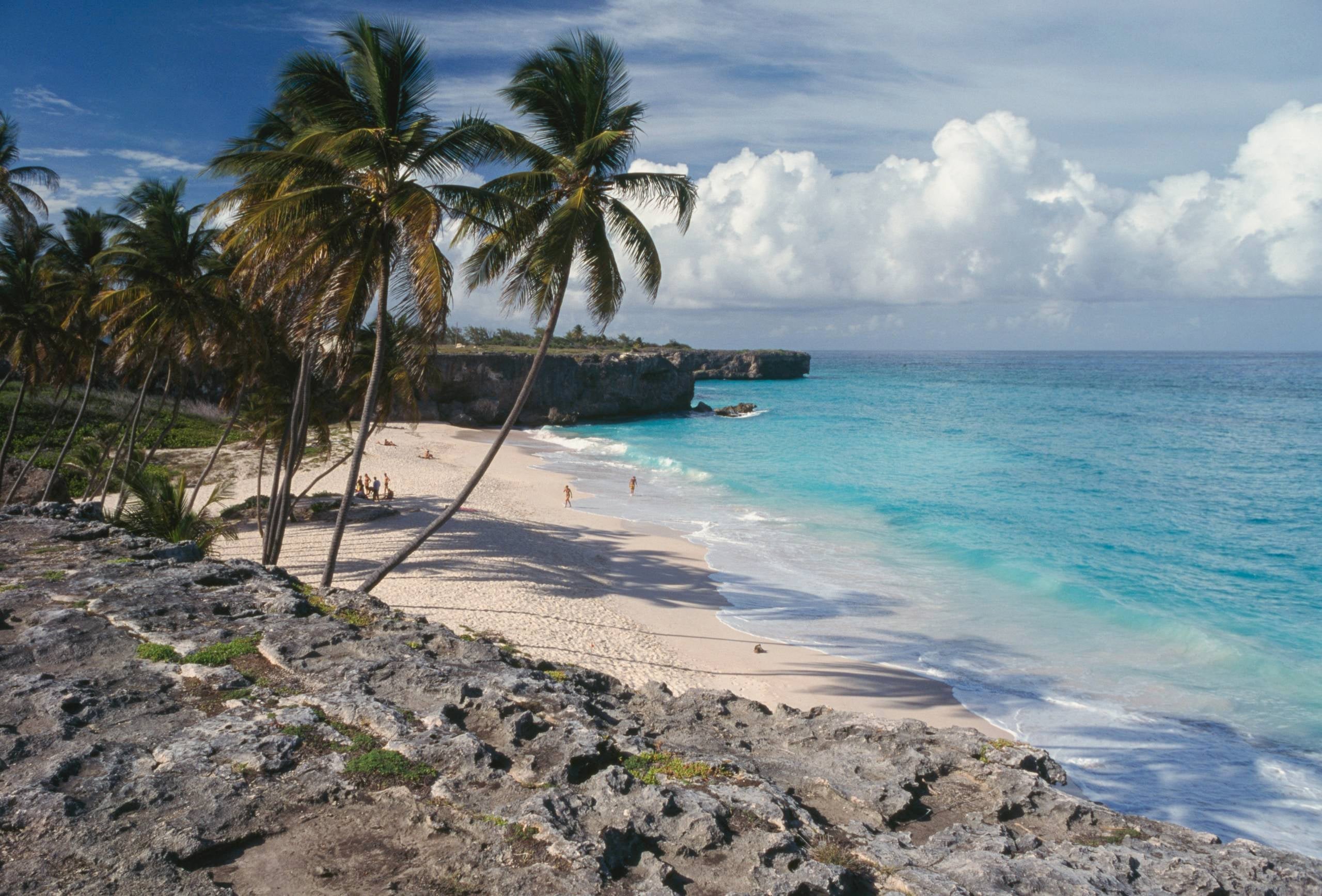
Barbados has a robust testing protocol in place that includes a mandatory quarantine upon arrival. No exceptions, even for fully vaccinated travelers.
You'll need to take a PCR test within three days before you arrive. The BIMSafe app can be used to upload your entry documents and complete your health tracking requirements while in Barbados. You can also go to travelform.gov.bb to fill out online immigration/customs forms and upload your negative PCR test.
Only COVID tests taken at an accredited medical facility will be accepted. No self-samples, rapid tests or home tests are considered valid. Children under 5 years old are exempt from testing unless they are symptomatic or a member of their travel party tests positive, but all unaccompanied minors will need a negative COVID-19 PCR test.
You'll also be required to take an additional rapid test upon arrival. Then you'll be transported to your preapproved accommodations.
If you're vaccinated, you'll only have to quarantine for one to two days until you receive the results of your arrival test. If you're unvaccinated, you'll be required to quarantine for at least five days — when you'll be required to take a second COVID-19 PCR test before the quarantine is lifted. During your quarantine, you'll wear a monitoring bracelet and will need to do health checks via the BIMSafe app that will be shared with public health teams.
Travelers from Brazil, India or South Africa have stricter entry requirements.
There is no curfew in effect anymore in Barbados, and there are no restrictions on travel within the country after all quarantine protocols are followed.
Related: Barbados set to welcome back Americans
You can visit the Visit Barbados website for more information and updates.
Belize: Open, no testing required if fully vaccinated
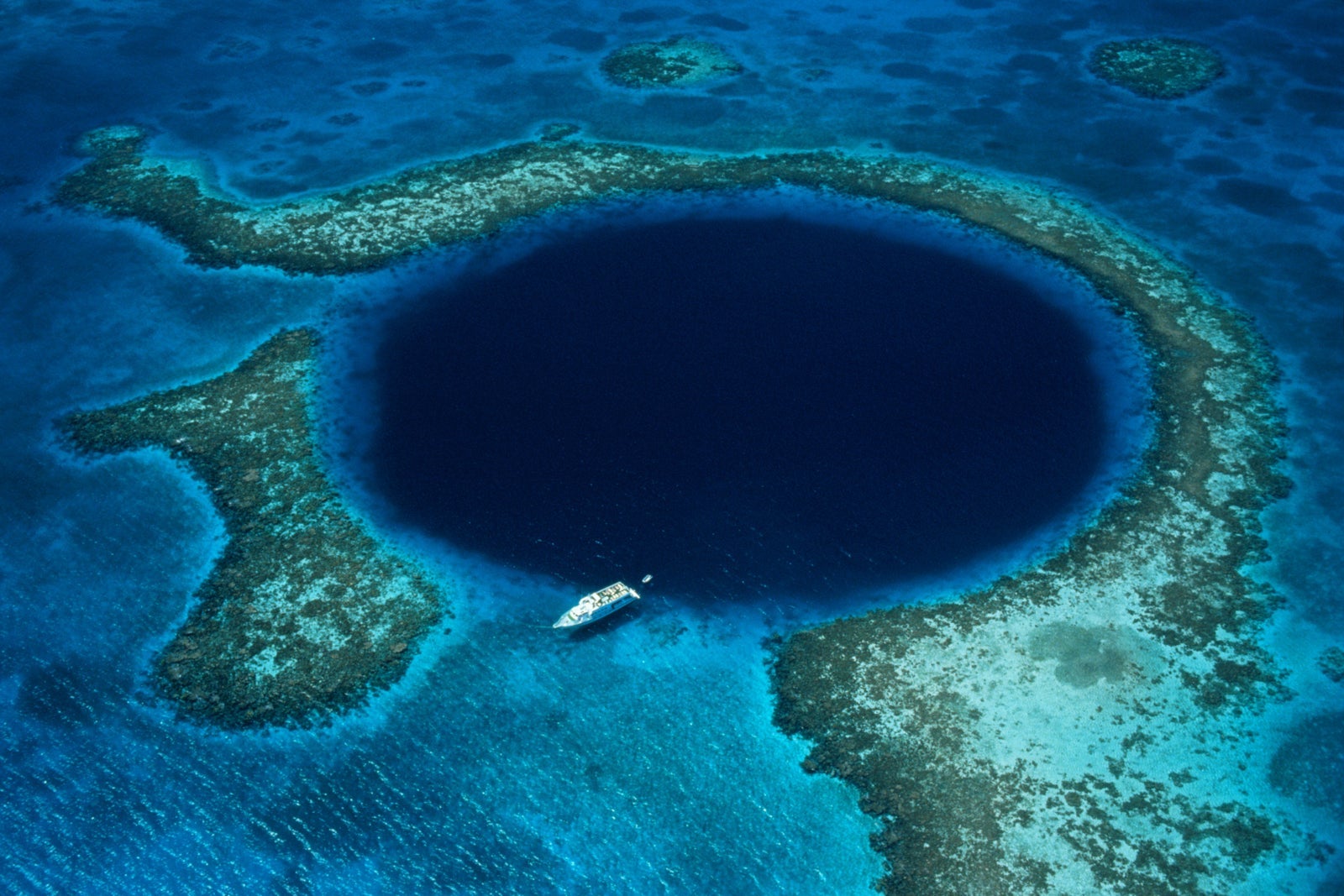
Belize is now open for international visitors by air; select land and sea borders are now open, too.
Once again, being fully vaccinated has its benefits. Travelers who are fully vaxxed don't have to undergo Belize's mandatory testing upon arrival, but you must show proof of vaccinations. Unvaccinated travelers must either take a PCR test within four days before arrival in Belize or a rapid test within two days before arrival. If you do not have a negative test when you arrive, you'll be tested at the airport. You'll have to pay $50 (in cash) if you opt to test on arrival.
If you are traveling to Belize for "vacation only," you'll need to make sure your booked accommodations are a "Gold Standard accommodation."
Face masks are still required in all public spaces. Restaurants are open but there are still capacity restrictions in place at restaurants and stores and there is a nationwide curfew in effect -- 10 pm on Sunday, 11 pm the rest of the week.
Related: 8 reasons Belize should be on your travel bucket list
Bermuda: Open, negative test required
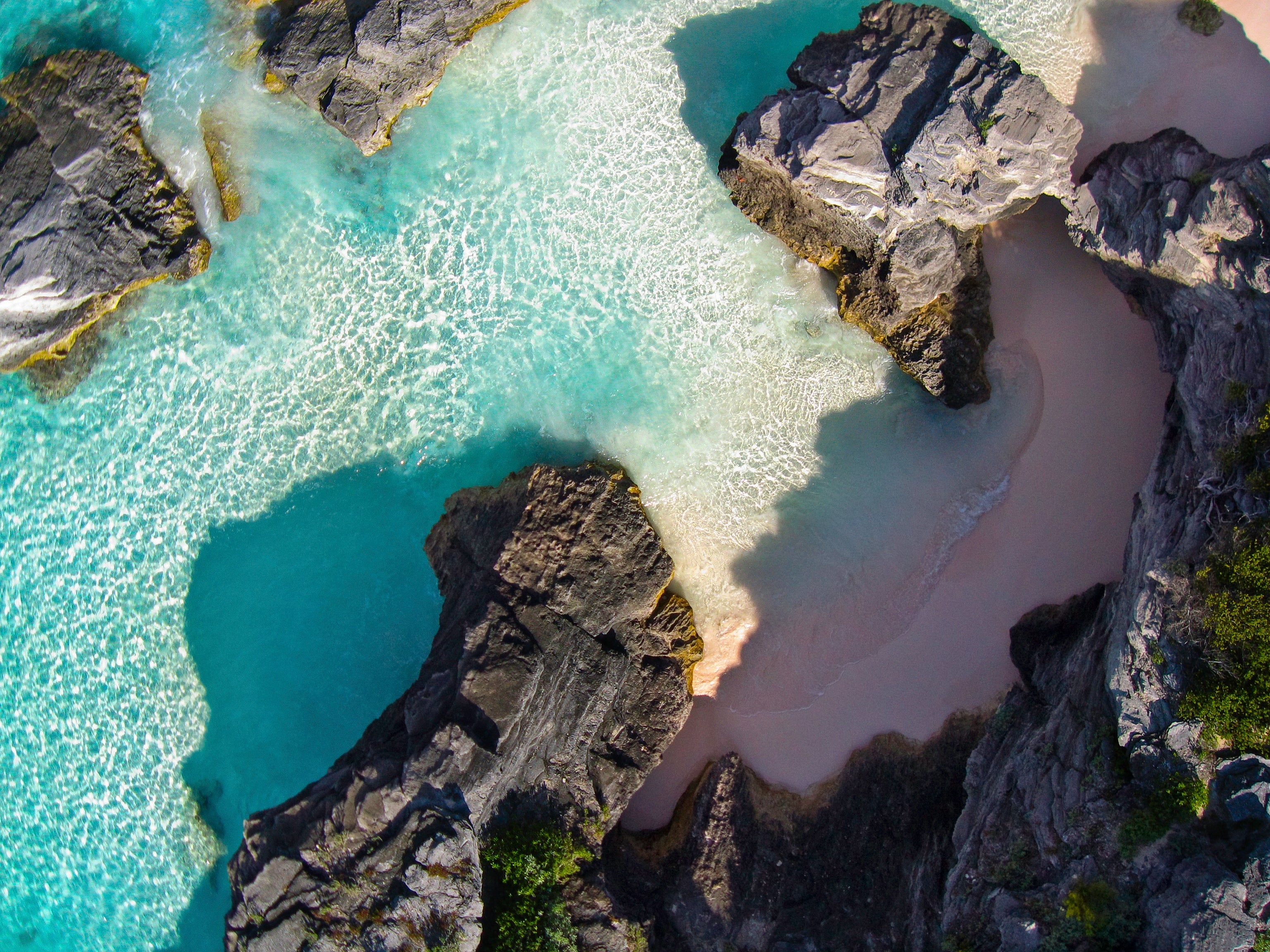
Bermuda is open to international travelers, but you'll need a negative COVID-19 PCR test and go through the Bermuda Travel Authorisation process online before traveling. It is mandatory that all visitors older than two years old complete the form 3 days prior to arriving in Bermuda in order to travel to the island.
Your negative test must be taken within four days before arrival. Children under the age of two are exempt. Keep in mind that you'll need your negative test to complete the Travel Authorisation process, and you'll also need to present your negative test results upon entry into Bermuda.
You'll also have to take a second PCR COVID-19 test at the airport. Then, if you're vaccinated, you must quarantine at your booked accommodation until your results are ready. Currently, the turnaround time is around 24 hours, but it could take more time. Once your second test is confirmed negative, vaxxed visitors will be able to freely explore the island. But, take note that additional COVID-19 testing will be done upon arrival for vaccinated travelers and on days four and 10 of your stay — each booked automatically for you.
If you're unvaccinated, you must quarantine in a government-approved hotel for 14 days. You are subject to the same entry requirements of a prearrival test, travel authorization and test upon arrival. You will test on day 13 of quarantine and will be released once you receive your results.
You can check out a full rundown of testing and mask-wearing protocols on the Go To Bermuda website.
British Virgin Islands: Open, negative test and quarantine required
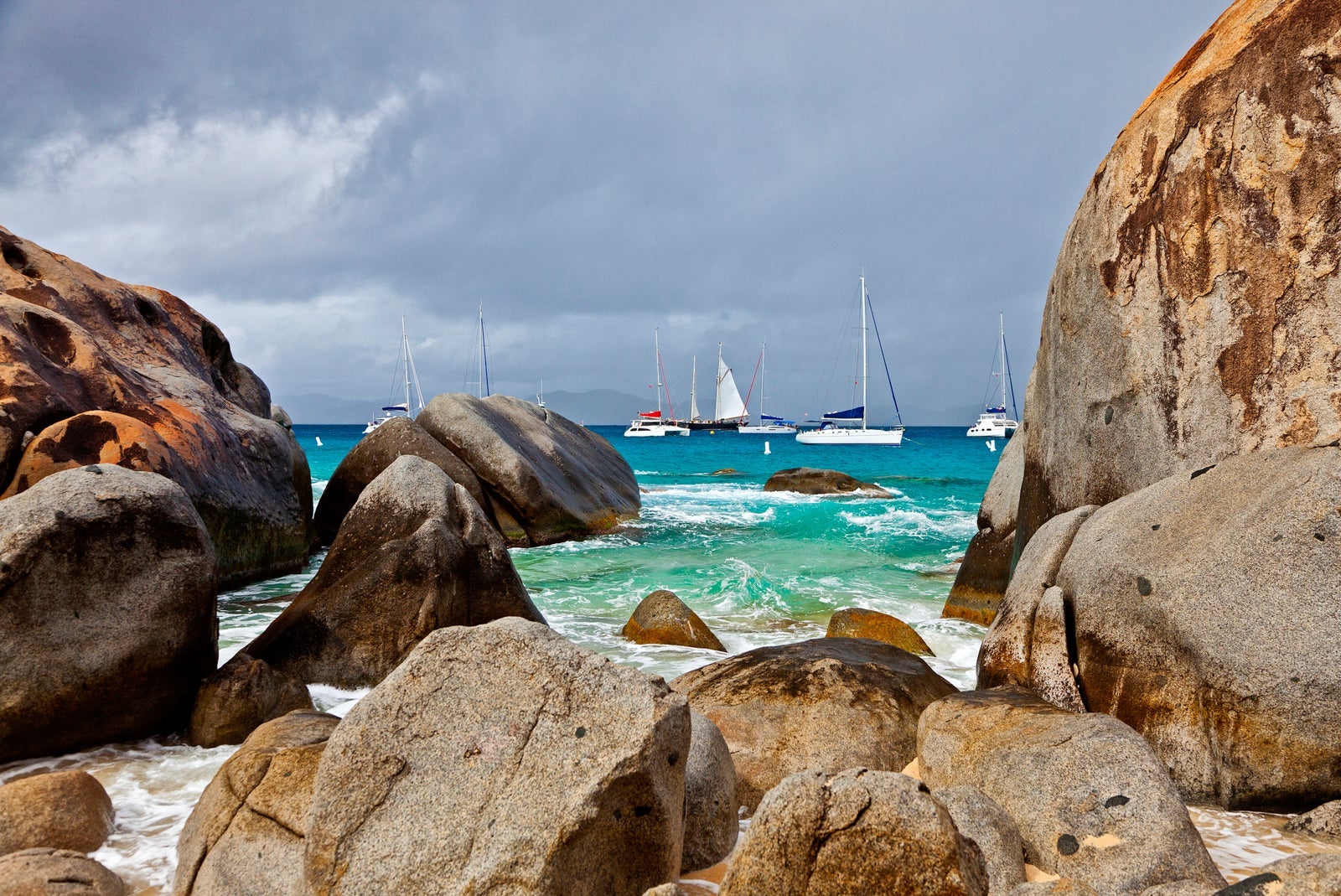
The British Virgin Islands had reopened to visitors, but the resurgence of coronavirus cases has led to the return of virus restrictions. Right now, the BVI are under a Level 4: Do Not Travel advisory from the U.S. State Dept.,which indicates a very high level of COVID-19 activity. On the official British Virgin Islands tourism website, it notes that as of July 12, fully vaccinated visitors will be subject to COVID testing upon arrival.
All tourists will need to register their trip online at bvigateway.bviaa.com — the process must be started no later than 48 hours prior to travel and completed at least 24 hours before travel.
If you are flying, the only airport you are allowed to fly into is Terrence B. Lettsome International Airport (EIS).
For entry, all travelers, no matter their vaccination status, will need the following:
- A negative COVID-19 PCR test taken within five days prior to arrival (children under 5 are exempt).
- Be tested for COVID with an approved antigen rapid test, and must quarantine until a negative test result is confirmed.
- Application for a BVI Gateway Traveler Authorization Certificate started at least 48 hours before travel and completed at least 24 hours before. The cost is $50
For those who are unvaccinated, once you get to the British Virgin Islands, you'll be required to take an "Arrival Day" PCR test and quarantine for seven days.
After four days of quarantine, you'll receive an additional test. If that test is negative, you'll be free to roam.
The Islands currently have a curfew that runs from 7 pm - 5 am.
Cayman Islands: Limited international leisure travel
The Cayman Islands are still in phase 1 of their five-phase reopening plan. It began with a soft reopening on Oct. 1, 2020, but only select travelers approved by Travel Cayman are currently permitted:
- Cayman island citizens.
- Permanent residents.
- Work permit holders and their families.
- Persons who own residential property within the Cayman Islands.
- Students with a valid visa to study in the Cayman Islands.
- Persons with close family ties to residents or work permit holders (spouses, fiances, parents, grandparents and siblings).
- Persons approved on the Global Citizen Concierge Program.
- Other visitors approved via the Travel Cayman team.
Cruise ships are still not allowed to enter Grand Cayman. Officials say the cruise ships will be able to return once all five phases of the reopening are completed, in January 2022.
Those who do meet entry requirements will have to register with the Travel Cayman service before your trip and provide a negative COVID-19 PCR test taken within 72 hours prior to departure. If you are vaccinated, you'll need to quarantine for five days once you arrive. If you're not vaccinated, you'll be required to quarantine for 14 days. For the quarantine to end, there needs to be a sign-off by the Medical Officer of Health, and you'll need to take another COVID-19 test.
Cuba: Open, but current unrest makes it a difficult travel choice
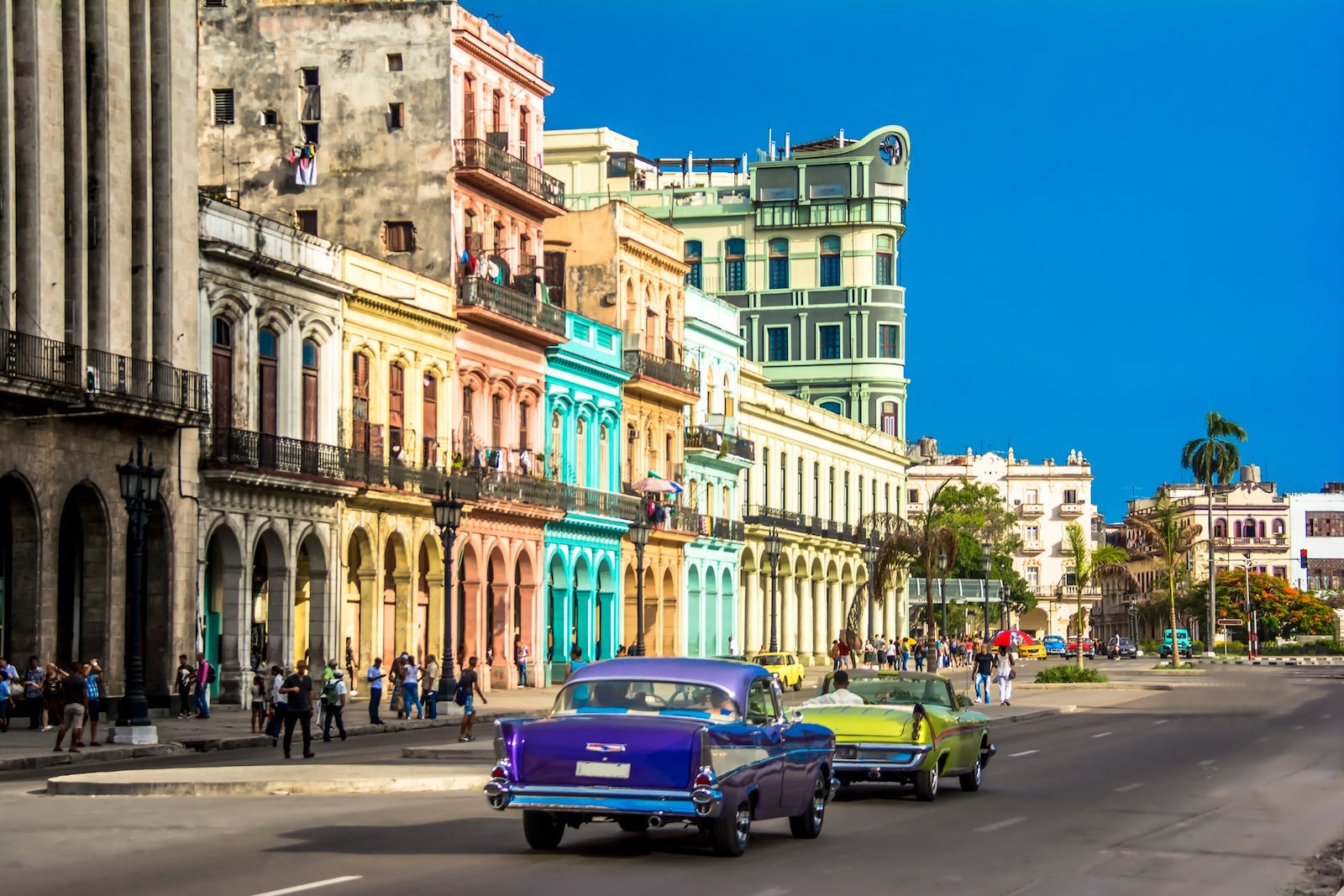
Cuba reopened its borders to international visitors in July 2020, but since we last updated this story, things have taken a drastic turn on the island. Unprecedented protests against the Cuban regime have roiled the communist island, and keep in mind that the U.S. State Department had a Level 4: Do Not Travel advisory in place before the protests. You can read about the additional restrictions for U.S. travelers visiting Cuba unrelated to the pandemic that visitors must follow.
Travelers wishing to enter Cuba -- in addition to adhering to the additional restrictions -- must present a negative COVID-19 PCR test taken within 72 hours before arrival and are required to fill out a health declaration form.
On arrival, all travelers must get another PCR test, and non-Cuban residents are required to isolate at an approved hotel for at least seven days. After the sixth day of isolation, another PCR test is required. The self-isolation will end once the test comes back negative.
Related: Don't make these mistakes when visiting Cuba
Dominica: Open, negative test and quarantine required
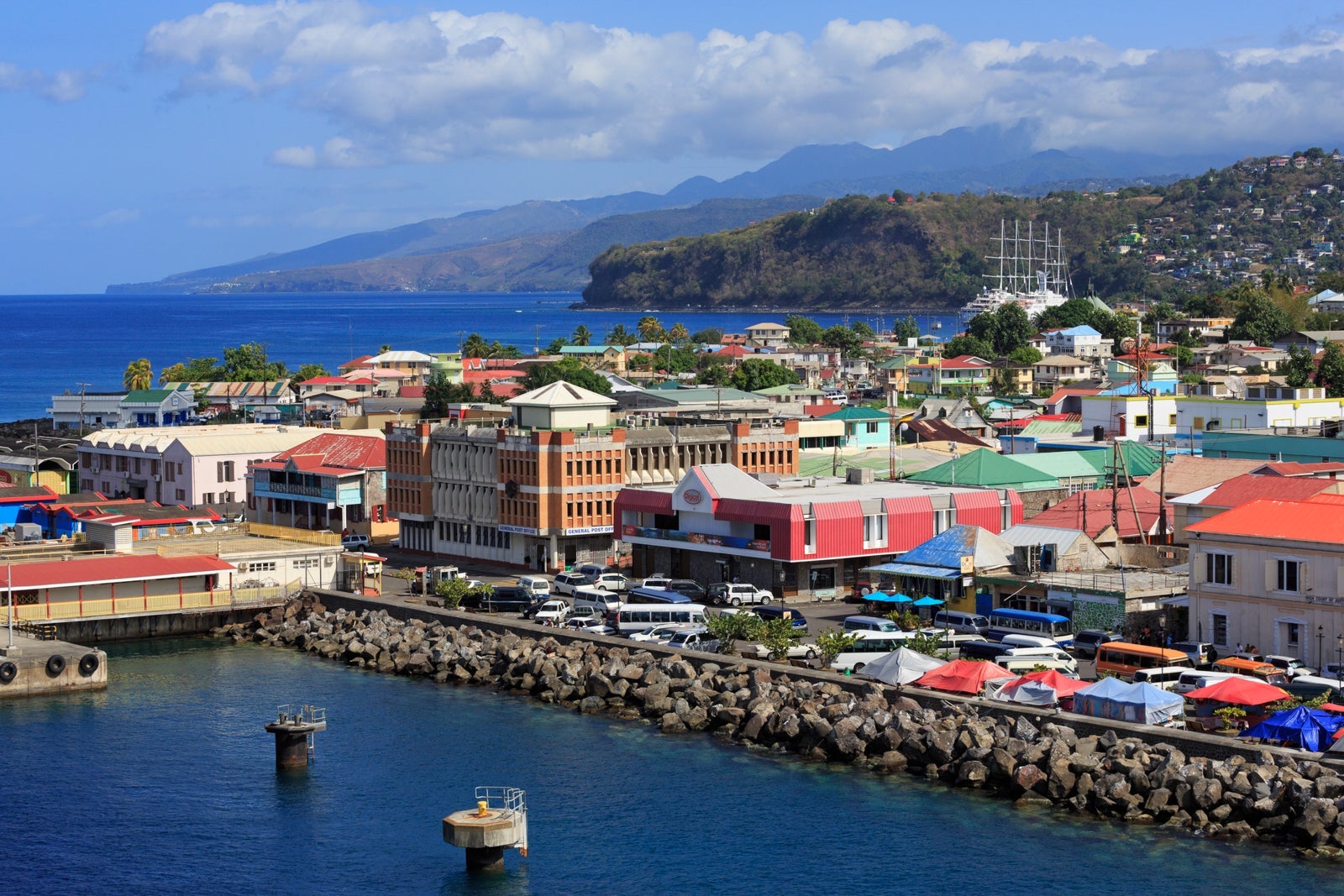
Dominica, which reopened to visitors in August of 2020, has different requirements for travelers based on the risk designation of their country of origin. Fully vaccinated travelers arriving in Dominica must follow the procedures below:
- Submit a health questionnaire online at least 24 hours prior to arrival.
- Present notification of clearance to travel in the form of a doctor's note or similar document.
- Submit a negative PCR test result recorded between 24 and 72 hours prior to arrival.
- Provide confirmation that you've booked a government-certified private property.
- Undergo a health assessment upon arrival.
Fully vaccinated travelers who are medically cleared upon arrival do not have to quarantine at an approved hotel or "Safe in Nature" facility.
Those from high-risk countries who are not fully vaccinated will undergo rapid COVID-19 test screening at Dominica's airport and need a negative test result (children under 5 are exempt) to proceed with arrival. Then, these unvaccinated travelers must spend at least five to seven days in mandatory quarantine at a government-approved location. On day five, these travelers will take a PCR test and will be released once they receive a negative result.
As with many other countries accepting U.S. tourists, visitors must also adhere to stringent on-site policies around social distancing and safe hygiene, including:
- Wearing face masks at all times during the arrival process, up to and including departure from the airport.
- Observing physical distancing guidelines.
- Following all instructions from local health care staff and officials.
Dominican Republic: Open, spot checks upon arrival
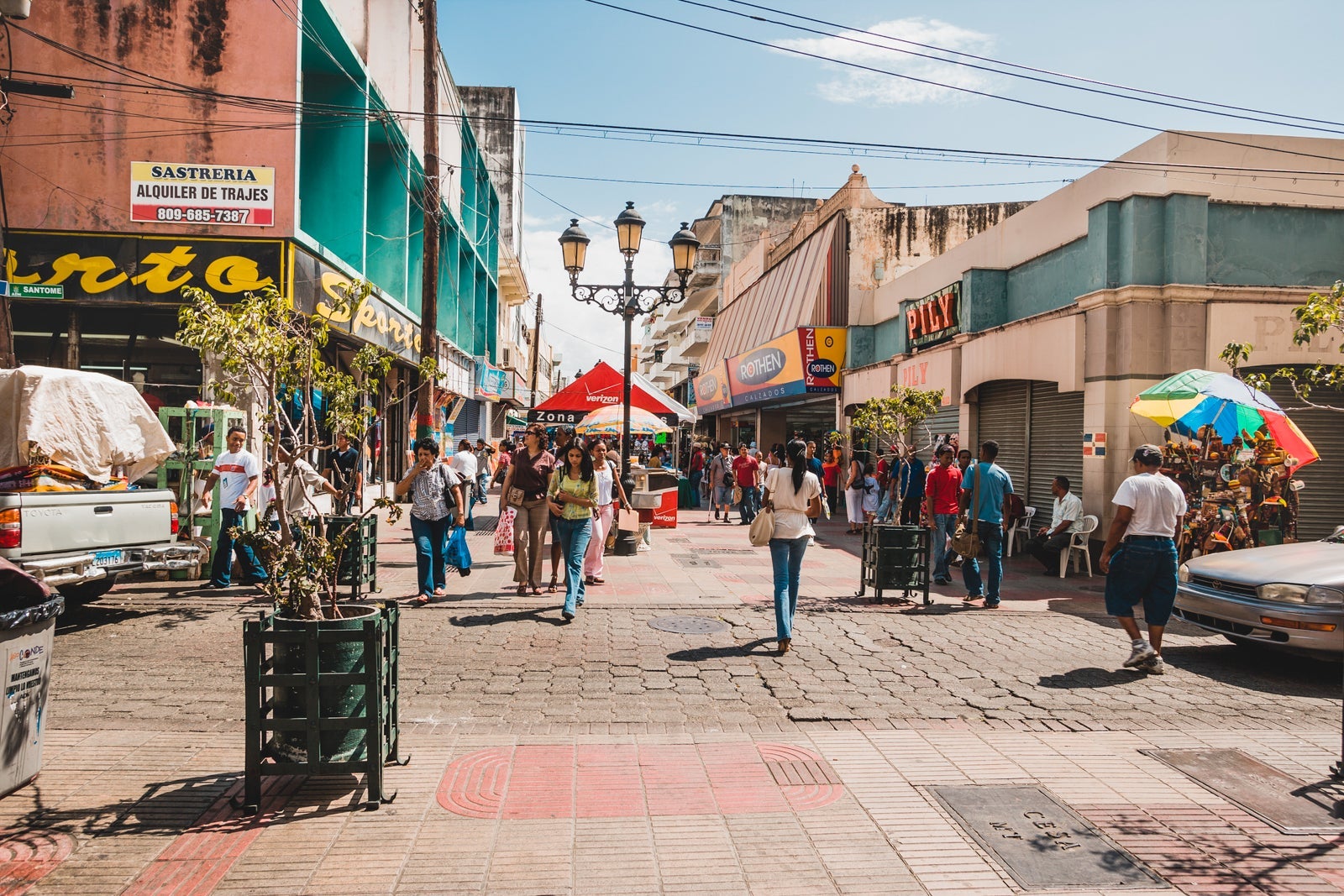
The Dominican Republic remains open to travelers and is one of the few Caribbean destinations that does not require a PCR test prior to arrival. Instead, there may be temperature checks upon arrival and COVID-19 rapid tests for randomly selected passengers. Passengers who show proof of being fully vaccinated at least three weeks before arrival can bypass random testing. Children under the age of five are also exempt from these tests.
There is an island-wide curfew in place from 11 pm to 5 am each day with a "free circulation" until 11 pm each night. The U.S. Embassy reports that the curfew is strictly enforced.
You will be required to fill out Electronic Entry Ticket or paper form on arrival to declare you haven't felt any COVID-19-related symptoms in the past 72 hours. Passengers who fill out the ticket will receive a QR code to present to authorities at the airport.
Grenada: Open, negative test and quarantine required
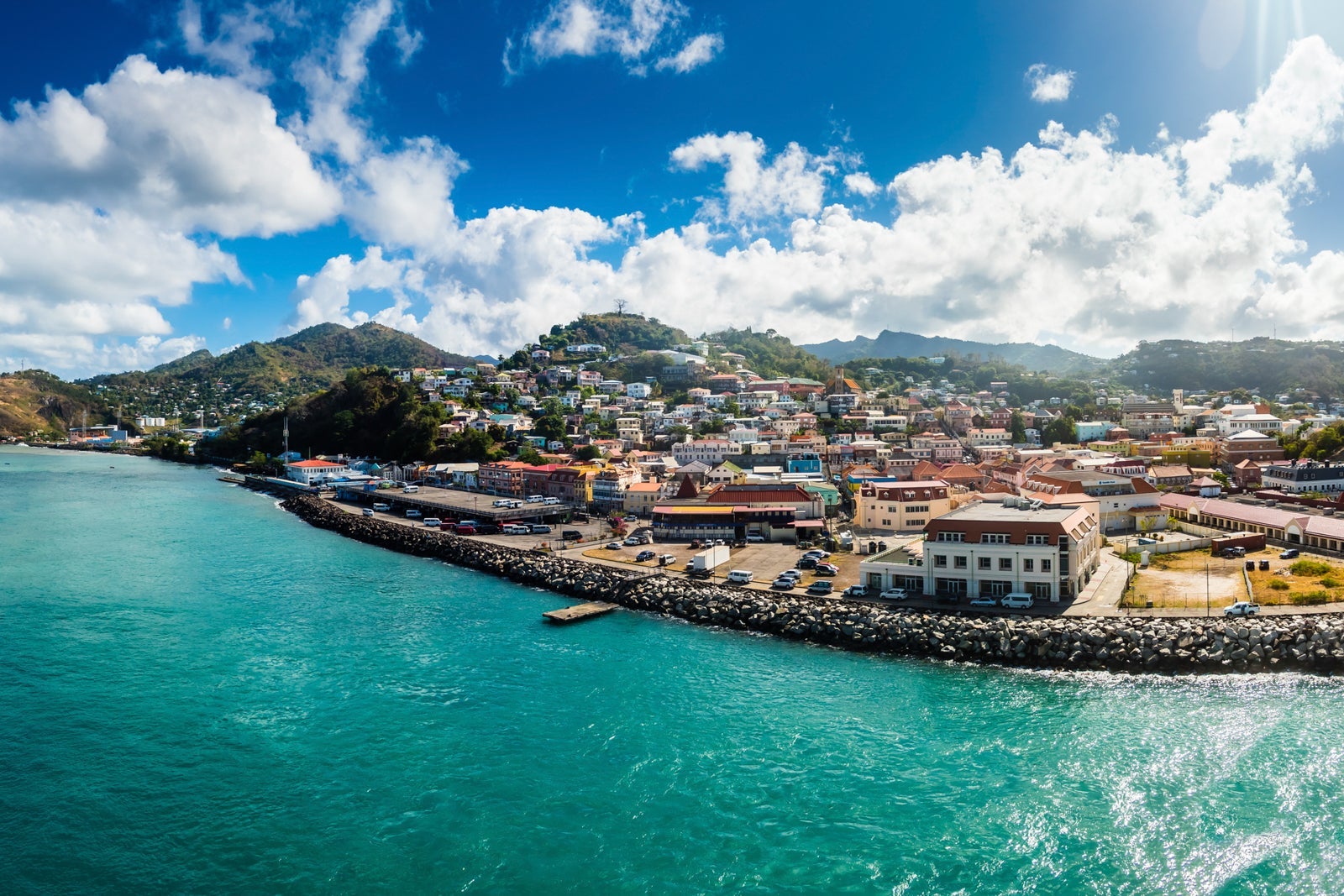
Grenada reopened to tourists on Aug. 1, 2020, but there are a number of restrictions in place. The most important one is that all travelers, regardless of vaccination status, must quarantine for up to 14 days. On the fifth day, visitors will take a PCR test. If it comes back negative, usually within two days, they will be free to move around the island.
Here are the requirements before traveling:
- Prepay for a COVID-19 test on day five.
- Complete the Pure Safe Travel Certificate.
- Obtain a negative COVID-19 PCR test taken within 72 hours of arrival (children under 5 are exempt).
- Obtain travel insurance valid in Grenada.
You'll also need to show proof of a confirmed reservation for no fewer than seven nights at a Pure Safe Travel accommodation. You'll quarantine there until you take a second PCR test on day five — which will cost about $152. You will be able to move freely around the country once your test comes back negative and you receive clearance from health officials. Note: If you are a guest at an all-inclusive resort, an antigen test is taken on arrival at the hotel and on day 5, a PCR test is taken.
You can check out a full list of travel requirements here.
Haiti: Open, but exercise extreme caution
Haiti is in the middle of major civil unrest, after the assassination of President Jovenel Moise.
The U.S. has a Level 4: Do Not Travel notice in place for Haiti due to this and COVID-19. Haiti is technically still open to tourists so long as visitors can produce a negative PCR test taken no more than 72 hours prior to their flight to Haiti. So even though the country is technically open for visitors, make sure to assess the non-pandemic risks of traveling there at present.
Jamaica: Open, negative test required

Jamaica is currently open for tourists when you have a negative COVID-19 PCR or antigen test. The negative test must be taken within three days of travel.
You also have to submit an online Travel Authorisation form within seven days before your arrival in Jamaica. Both the travel authorization and negative test are required to board flights to Jamaica.
One noteworthy piece of information: Until August 10, 2021, non-Jamaican nationals who have been in Argentina, Brazil, Chile, Colombia, Paraguay, Peru, India or Trinidad & Tobago within 14 days of their intended date of entry will not be allowed to enter Jamaica.
"Resilient Corridors" have been created along some of the popular coasts of the country. These corridors restrict the movement of tourists to certain areas -- so take note that certain inland excursions may be off-limits for tourists.
Many hotels and resorts in Jamaica offer on-site COVID-19 testing to help visitors comply with the U.S. reentry requirement of providing proof of a negative COVID-19 test.
Martinique: Open, proof of vaccination and negative test required
According to the U.S. Embassy, fully vaccinated travelers are permitted to travel to Martinique as long as they present a negative COVID-19 PCR test taken within 72 hours of departure for the island. Those who have received both shots of Pfizer, Moderna and AstraZeneca at least 14 days before arrival or the single dose of Johnson & Johnson 28 days before arrival do not have to quarantine. Travelers also must submit a statement saying that they are not sick and have not been knowingly exposed to COVID-19 in the past two weeks.
Unvaccinated travelers are now allowed to enter the country, but only if they provide a valid reason for their visit (non-essential travel is not permitted for unvaccinated people). There are only a few exceptions to this rule. Those who aren't vaccinated will also have to quarantine for seven days and take an exit test.
Masks are required throughout the island with fines for noncompliance. There is no curfew as of July 5.
Puerto Rico: Open, negative test required
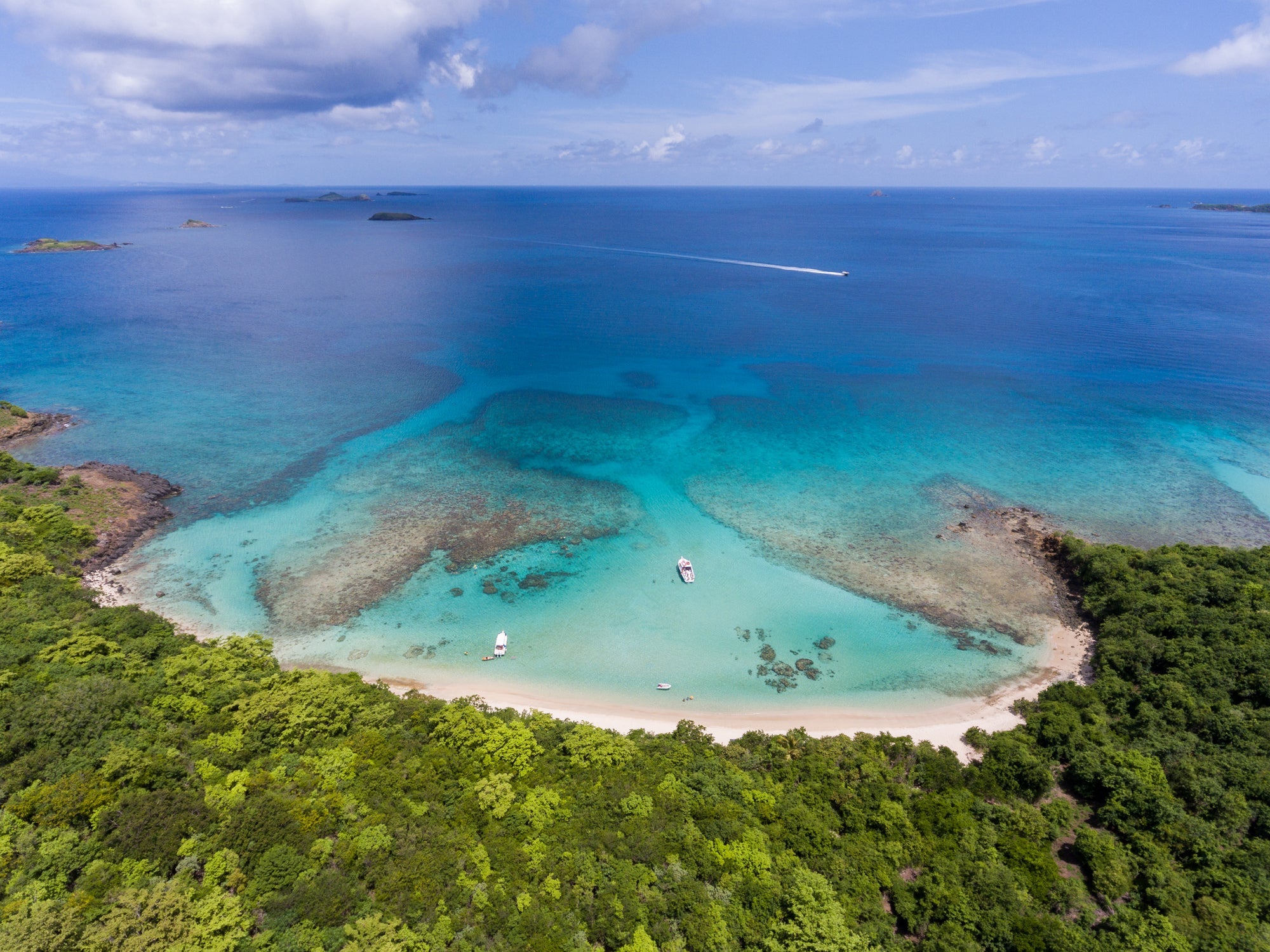
Although Puerto Rico is a U.S. territory, it merits a separate entry as one of the most popular destinations in the Caribbean. Discover Puerto Rico has put together a useful guide for what to expect if you plan a visit to the island at the moment.
Here's what you'll need to do before arriving:
- Complete an online Travel Declaration Form. You can also fill this out at the airport, but filling it out ahead of time will save you time once you land.
- For domestic vaccinated travelers, you need to have proof of vaccination.
- For international vaccinated travelers and all unvaccinated travelers, you need to have a negative COVID-19 PCR test (a nasal or throat swab) taken within 72 hours of travel.
- When you upload your vaccination card or negative PCR test to the online portal, you'll get an Airport Exit Confirmation number and a QR code, which you'll need upon arrival to Puerto Rico.
Three passenger airports are operating in Puerto Rico — San Juan (SJU), Aguadilla (BQN) and Ponce (PSE) — and travelers will undergo an enhanced health screening upon arrival. You'll be screened with thermographic cameras to monitor your temperature.
Once you get to PR, those who are fully vaccinated do not have to wear masks on the island. It is recommended you do so, but not mandatory. Officials have also lifted many pandemic restrictions, including the restrictions on indoor gatherings.
If you do not have a negative test upon entry, you can upload a COVID-19 test taken on the island within 48 hours of arrival.
St. Barts: Vaccinated Just need to show proof; unvaccinated must quarantine
St. Barts is open to U.S. travelers who are fully vaccinated, as of June 9. In addition to having proof of vaccination, those wishing to enter St. Barts must either show a negative COVID-19 PCR test taken within 72 hours of departure or a rapid antigen test taken within 48 hours of departure. A sworn statement -- where travelers confirm that they are not symptomatic and have not been knowingly exposed to the virus in the past two weeks -- is also required. Most important, fully vaxxed visitors don't have to quarantine.
Those who are not vaccinated, however, must self-isolate for seven days after arrival and take an exit PCR test to enter the country.
St. Kitts and Nevis: Open, proof of vaccination and negative test required
St. Kitts and Nevis announced as of July 12, 2021, the Vacation in Place period for fully vaccinated international visitors will be reduced from nine days to three days. Those travelers will have to be tested on day four and will have to fully integrate into the Federation upon receipt of a negative test result.
Only fully vaccinated travelers are allowed to enter the country at this time, with very few exceptions.
Vaccinated travelers must follow a series of strict protocols to enter the country, as outlined on the St. Kitts Tourism website:
- Complete an online immigration and customs form, uploading proof of vaccination and proof of hotel booking.
- Submit a negative COVID-19 PCR test (rapid tests not accepted) taken within 72 hours prior to arrival.
- Receive an approval letter and retain a copy of it.
- Download the SKN COVID-19 contact tracing mobile app.
- Undergo a health screening at the airport.
Once travelers arrive in the country, they must remain on their hotel's property for nine days and take a COVID-19 test on day nine at a cost of $150. If travelers follow all of these protocols and their day nine test comes back negative, they will be allowed to move around the country.
There are only seven approved hotels for international visitors, but they include three points hotels: the Park Hyatt St. Kitts, the Four Seasons Nevis and the St. Kitts Marriott Resort.
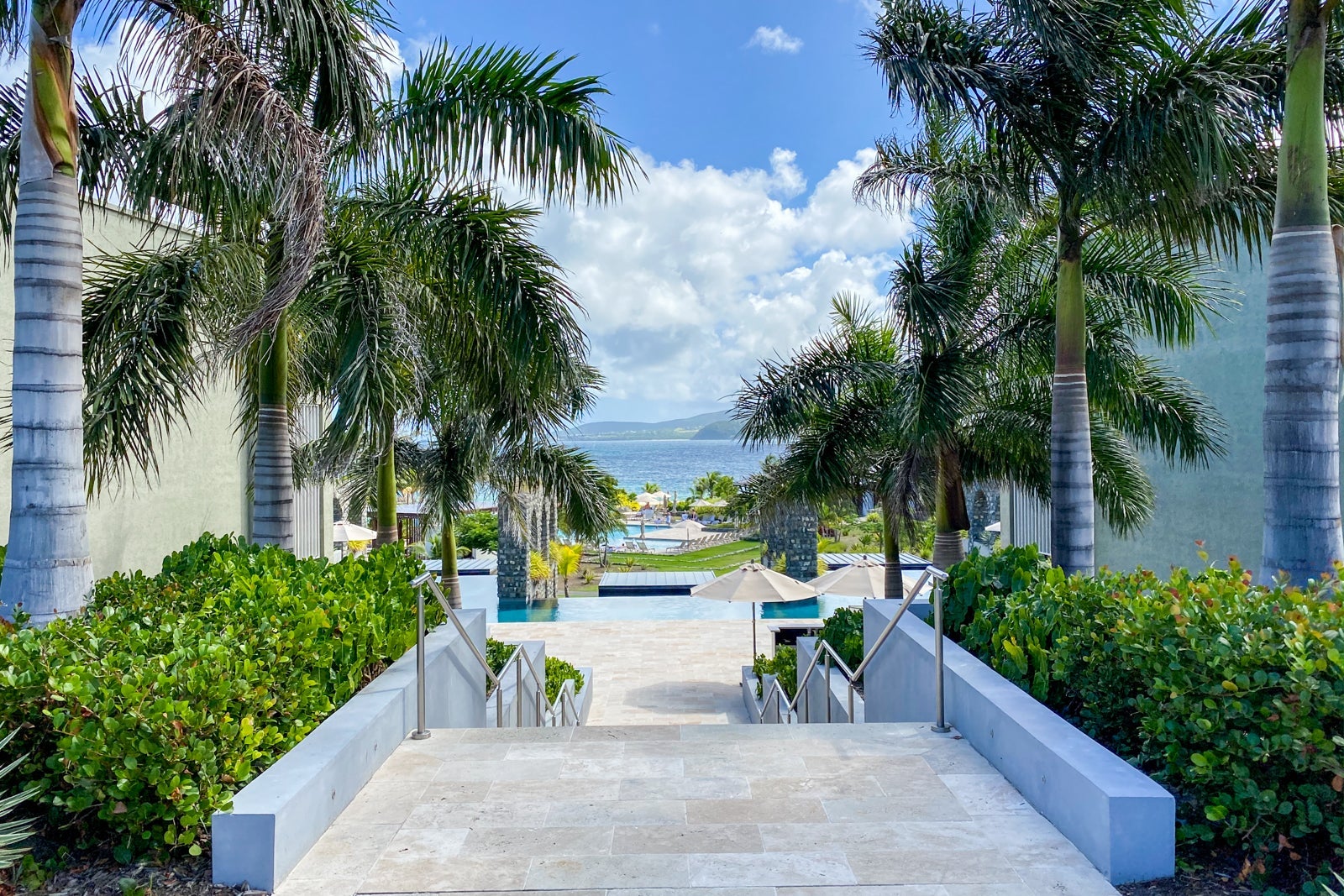
St. Lucia: Open, negative test required, other restrictions based on vaccination status
St. Lucia reopened the island's tourism sector back in June 2020. All visitors from outside St. Lucia's designated travel bubble over the age of 5 are required to submit a negative COVID-19 PCR test taken within five days of their flight to Hewanorra International Airport (UVF). You'll also be required to download and complete the Health Screening Form and present it when you arrive in St. Lucia.
Upon arrival, you'll undergo a health check where your temperature will be taken. All international travelers from outside of the travel bubble (this includes all U.S. travelers) are required to stay at their COVID-19-certified property.
Those who are fully vaccinated can freely move around the island -- but they must continue to follow local guidelines such as mask-wearing and social distancing.
Those who are not vaccinated can only participate in certified tours and activities for the duration of their stay.
For further details, visit the International Arrivals page on the St. Lucia Tourism website.
Related: Everything you need to know about St. Lucia's reopening
St. Maarten: Open, negative test, insurance and self-reporting required
As of July 5, 2021, St. Maarten tightened up its entry requirements for U.S. visitors. All travelers older than 10 years old wishing to take a trip to the island, which is currently classified as "high risk," must complete a health preauthorization application, purchase COVID-19 insurance and provide negative PCR test results received within 72 hours prior to departure. Alternatively, antigen tests can be used if taken within 48 hours prior to departure. Results from home COVID-19 collection test kits will not be accepted.
Incoming passengers will be subjected to a temperature check and other screening protocols and may be subjected to mandatory testing at the traveler's own expense.
Travelers coming from a high-risk country will also be required to self-monitor for five days and must provide health updates collected via email on a daily basis. Accommodations are providing temperature measuring assistance.
St. Vincent and the Grenadines: Open, negative test and quarantine required
As of July 13, 2021, entry requirements which are broken down by country risk level have changed somewhat.
Currently, the U.S. falls under the "High Risk" category, meaning travelers to St. Vincent and the Grenadines must arrive with a negative COVID-19 (RT-PCR) test taken no more than 72 hours before arrival.
Travelers who are fully vaccinated but coming from countries deemed high-risk - such as the U.S. and the UK - will have to self-isolate for 48 hours in a government-approved hotel. They will need to have documented proof of vaccination and they may be re-tested upon arrival to the country.
Visitors from countries deemed "Very High Risk" will have to quarantine for seven days. For travelers who are not vaccinated, there's a mandatory quarantine for 14 days in an approved quarantine hotel at travelers' own expense where you'll be retested between day four and day seven of quarantine.
All travelers must also fill out the Pre-Arrival Form.
Trinidad and Tobago: Closed
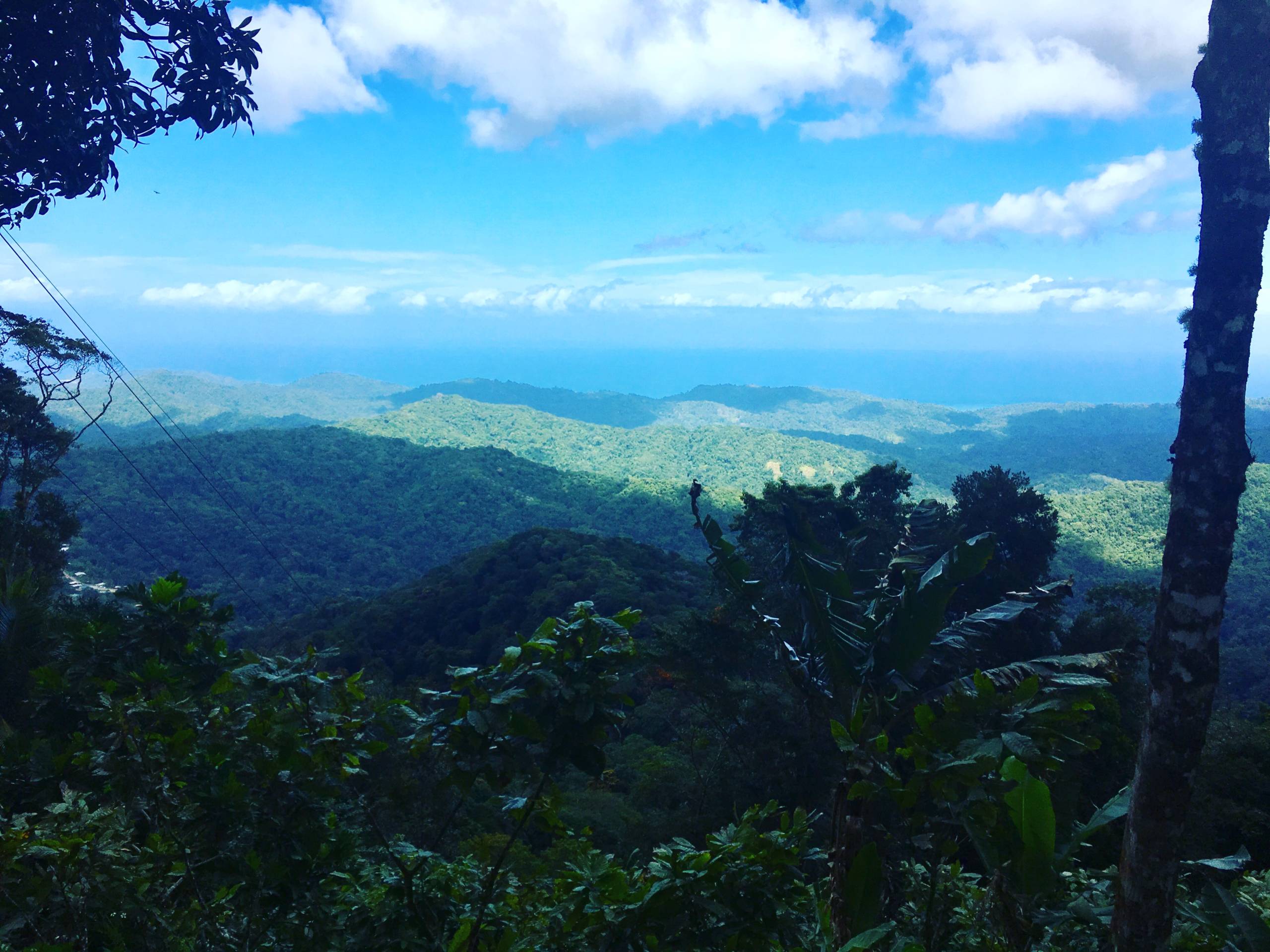
The nation of Trinidad and Tobago reopened its borders on July 17 in a limited capacity, with only fully vaccinated visitors able to enter the country. All travelers, either tourists or nationals, are required to get a digital TTravel Pass.
Fully vaccinated non-nationals adults and minors must submit a negative PCR test taken no earlier than 72 hours before arrival to be allowed to enter the country.
At this time, non-vaccinated visitors are not allowed to enter Trinidad and Tobago.
Turks and Caicos: Open, negative test and insurance required
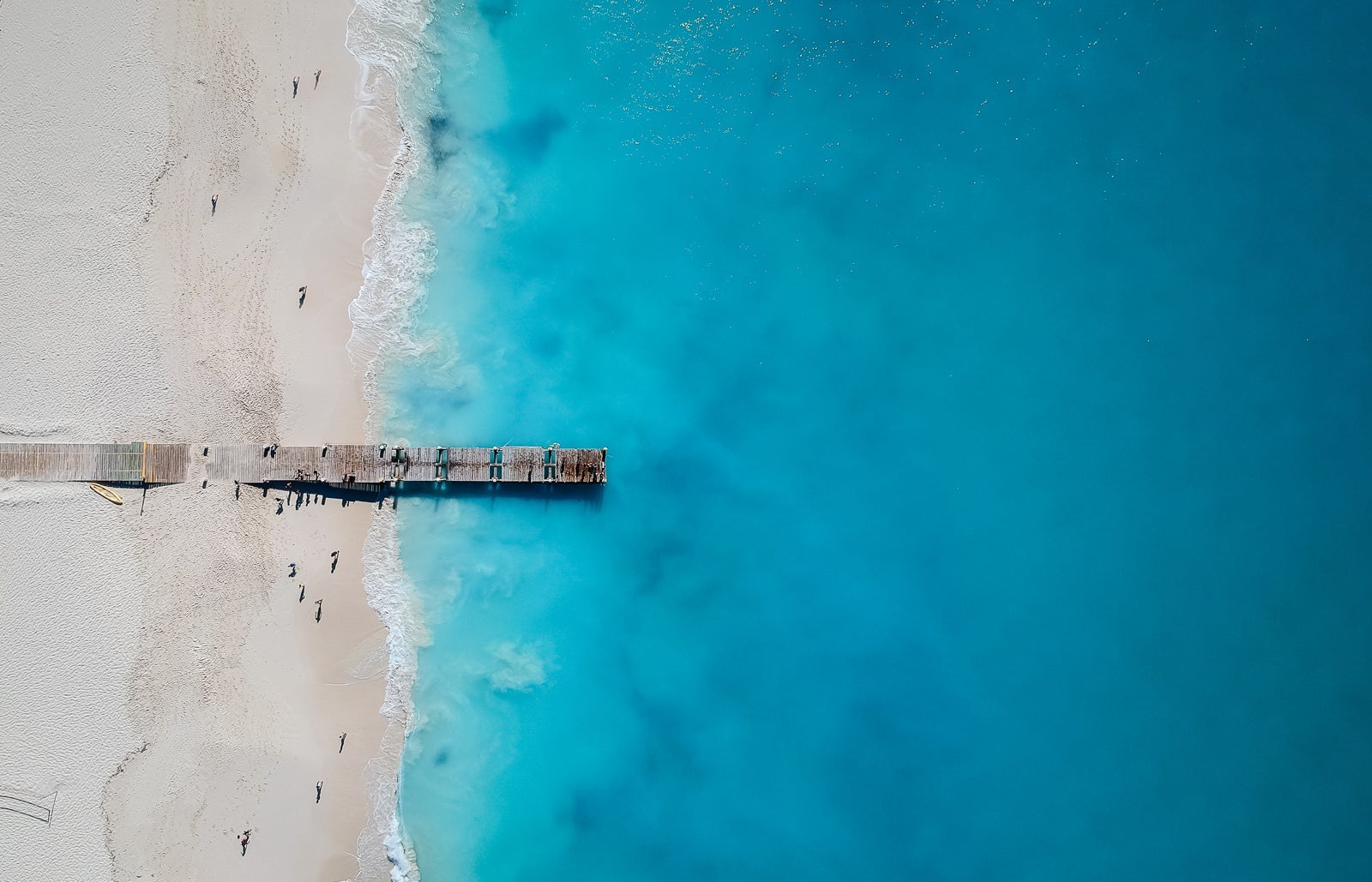
Turks and Caicos reopened on July 22, 2020.
Providenciales International Airport (PLS) is open and offering regularly scheduled flights, including many to and from the U.S. However, cruise ships to Turks and Caicos have been banned through Sept. 30, 2021.
All travelers must complete a TCI Assured Travel Authorization before boarding their flight. As part of the authorization, a negative COVID-19 PCR test must be taken. One change is that, as of July 28, the window for accepted test results has shrunk from five to three days prior for travelers age 10 and older. Antigen tests will be accepted.
You'll also need to purchase insurance that covers COVID-19 medical costs and complete an online health screening questionnaire. Travelers must undergo a screening and temperature check on arrival.
There is no quarantine required for tourists, whether they are fully vaxxed or not.
There is a 1 am curfew on all islands of Turks and Caicos, and masks are required in all public places until the end of September. Restaurants and bars are open but limited to 70% normal capacity.
Many resorts and hotels are now open; the government suggests reaching out to your specific property for information. Certain properties are also offering COVID-19 testing for guests.
US Virgin Islands: Open, negative test required
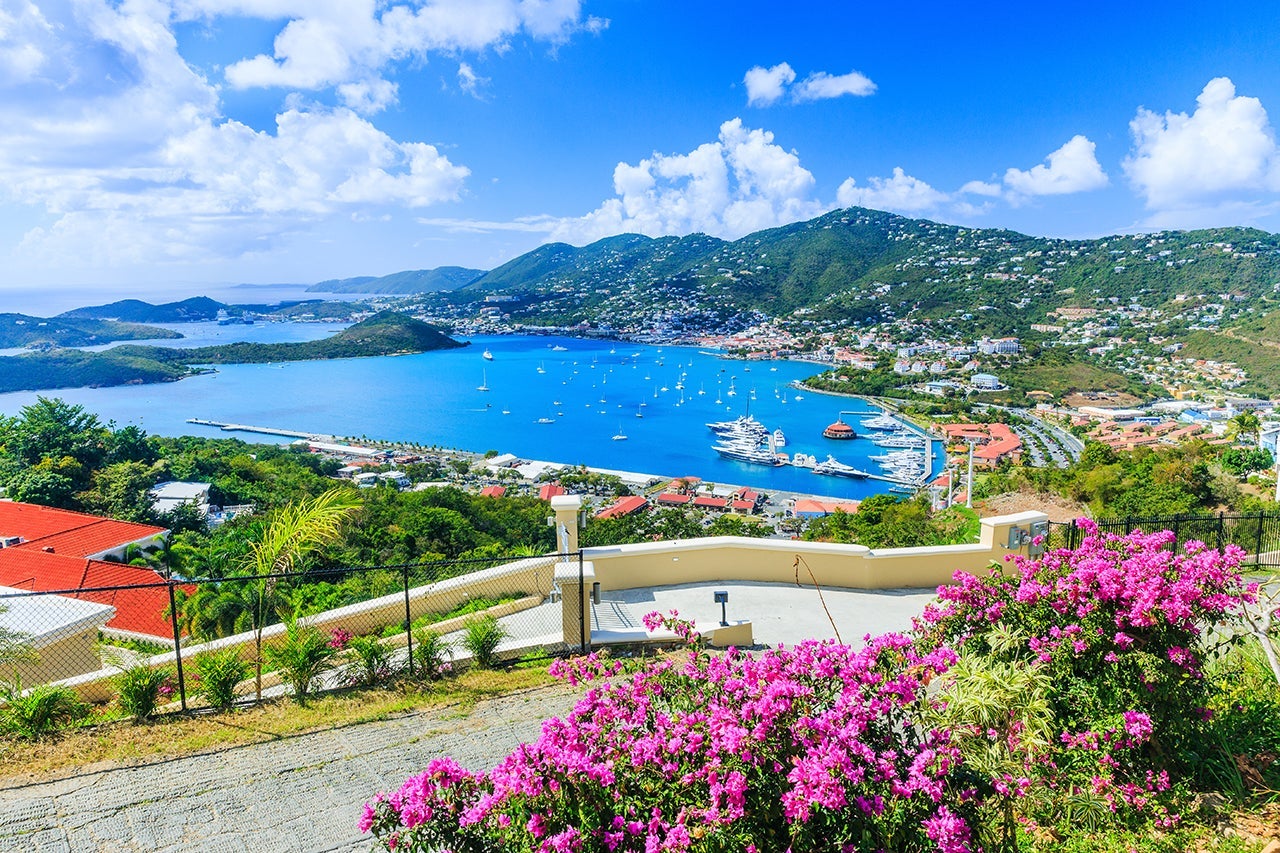
The U.S. Virgin Islands, which includes St. Thomas, St. Croix and St. John, was under a state of emergency until July 11, 2020, but is now welcoming back tourists with restrictions. It is currently in its "Safer at Home" phase, which requires facial coverings upon arrival and while in the territory and that travelers comply with social distancing requirements.
As of Feb. 27, all travelers age 5 and older are required to use the USVI Travel Screening Portal and submit a COVID-19 test result prior to travel.
Accepted tests include a COVID-19 molecular test from a nasal or throat or saliva swab, a COVID-19 antigen (rapid) test from a nasal or throat swab, or a COVID-19 antibody finger stick or blood test taken and positive result received (both within four months of commencement of travel to the territory). For the first two, the test must be taken and results received within five days of arrival.
There are routine temperature checks and health screenings at the ports of entry and public places, with no quarantine required if travelers are healthy.
As of July 19, people going from the British Virgin Islands to the U.S. Virgin Islands must provide a negative PCR test result taken within 48 hours of travel, or a positive antibody test result that's done within four months for travel by boat, or three months if traveling by air.
Masks are mandatory when going into businesses and attractions, while beaches are open but social distancing is required. Hotels, guesthouses, villas, timeshares and Airbnb accommodations are all accepting bookings. COVID-19 guidelines are in place for retail businesses, attractions, taxi vans and safari and limo services.
And we want to remind you that the USVI is an American territory, which means U.S. citizens don't need a passport if you're traveling from the mainland or Puerto Rico.
Bottom line
Although many Caribbean countries have now reopened to tourism, most require a negative PCR test at a minimum and some also have insurance and quarantine protocols in place as well. Some, like Cuba and Haiti, are also in a state of flux for reasons unrelated to COVID.
While a Caribbean vacation might be on your 2021 wishlist, it's important to consider whether a trip is worth it right now. Will you be able to experience the destination to its fullest? What additional costs are associated with traveling right now? Are you prepared in case of a positive test and the subsequent quarantine (likely at your own expense)?
Additionally, keep in mind that all travelers coming into the U.S. are required to have a negative viral COVID-19 test result taken within 72 hours of departure before being allowed to board their flights. And the CDC and U.S. State Department have issued high-risk advisories for many Caribbean destinations due to COVID-19.
You'll have to jump through a lot of hoops — whether you're vaccinated or not — in order to travel to the Caribbean right now. But if you're planning ahead and researching all of the associated risks, it is possible to make a trip to many of these popular island destinations.
Related: A country-by-country guide to reopening borders around the world
Additional reporting contributed by Mike Avila, Jane Frye, Jacob Harrison, Clint Henderson and Katherine Fan.
TPG featured card
at Capital One's secure site
Terms & restrictions apply. See rates & fees.
| 5X miles | Earn 5X miles on hotels, vacation rentals and rental cars booked through Capital One Travel |
| 2X miles | Earn unlimited 2X miles on every purchase, every day |
Pros
- Stellar welcome offer of 75,000 miles after spending $4,000 on purchases in the first three months from account opening. Plus, a $250 Capital One Travel credit to use in your first cardholder year upon account opening.
- You'll earn 2 miles per dollar on every purchase, which means you won't have to worry about memorizing bonus categories
- Rewards are versatile and can be redeemed for a statement credit or transferred to Capital One’s transfer partners
Cons
- Highest bonus-earning categories only on travel booked via Capital One Travel
- LIMITED-TIME OFFER: Enjoy $250 to use on Capital One Travel in your first cardholder year, plus earn 75,000 bonus miles once you spend $4,000 on purchases within the first 3 months from account opening - that’s equal to $1,000 in travel
- Earn unlimited 2X miles on every purchase, every day
- Earn 5X miles on hotels, vacation rentals and rental cars booked through Capital One Travel
- Miles won't expire for the life of the account and there's no limit to how many you can earn
- Receive up to a $120 credit for Global Entry or TSA PreCheck®
- Use your miles to get reimbursed for any travel purchase—or redeem by booking a trip through Capital One Travel
- Enjoy a $50 experience credit and other premium benefits with every hotel and vacation rental booked from the Lifestyle Collection
- Transfer your miles to your choice of 15+ travel loyalty programs
- Top rated mobile app


